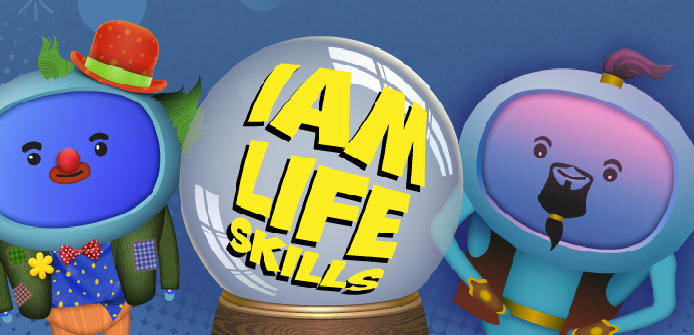On a chilly Saturday morning in January, I walked to the station and sleepily boarded a train to Manchester. For the first time in my career, I was off to self-discovered development, funded by the business. Whilst not a million miles away from benefiting me professionally, the driver was definitely personal – an intense dread of public speaking.
A one-day workshop promised to help address my worst fears, and within five minutes of discussing it with my manager, I was booked in.
He didn’t want me to put a business case together. He was happy to support something I’d find challenging.
This blew my mind. Up until this point in my career, training was something allocated. It certainly wasn’t a conversation or request. I’d never been encouraged to consider what I wanted (unless it was from the existing buffet, of course).
This seemingly small action triggered a range of positive effects for me and the business. And I believe, provides a pretty strong case study for the benefits of relaxing what constitutes ‘workplace development’, and its parameters.
Whilst I’m not advocating that everything and anything should be backed by the company dollar, or that we should think of workplaces as universities, it is worth considering what happens when we give people more advocacy over the spectrum of their development and see them as ‘person’ above ‘asset.’
Let’s start with a big one….
What happens when people feel invested in, beyond the job they do?
They feel cared for, and in turn, they care.
We’ve all felt like just another cog in the wheel, only as valuable as our performance data. In my experience, no matter how good the salary is, this ultimately leads to disconnect and the eager pursuit of something more.
A significant driver of ‘the great resignation’ was the glaring disparity between how businesses treated their people during the lockdowns. Some showed up and supported, others didn’t. A lot of us took note and fled the latter.
There are many things a business can do to demonstrate people matter beyond metrics and output. Development is just one of them, but it is a really important one; the job we perform is a slice of our identity, but we bring a whole host of other slices with us: our passions, interests, curiosities and struggles.
Whether or not you should bring your whole self to work is another (potentially contentious) blog, but I think we can all agree, that if a job engages you on a series of levels beyond money, you’re more likely to want to work hard and stay put.
Prescriptive development can limit people, confining them within their lanes, unable to explore horizontal or diagonal possibilities. It can also stifle innovation. It’s often a one size fits all approach, which in actuality, fits few.
Development which has traditionally been seen as lacking relevance to the workplace (building confidence, growth mindset, creative thinking, self-awareness, dealing with failure etc), is suddenly in the spotlight. We’re finally perceiving the value in acknowledging and addressing the people layers beyond our perfect workplace-appropriate exteriors.
And what happens to people when they feel positively challenged and stretched out of their comfort zones? They’re excited and engaged and crucially, their self-worth increases. All of these good things funnel back into their relationships, behaviours and performance at work.
Fancy less mistakes and faster growth?
We might only show the tip of the iceberg at work, but we bring along the hidden layers too, the good and the bad – stress, excitement, personal problems and beyond – there’s a hell of a lot of stuff happening under the surface.
On any given day, we’re battling with a whole host of things beyond the project deadline and taking our turn to make tea – perhaps financial concerns, parental challenges or trying to find somewhere new to live. Not offering support for all of this at work isn’t necessarily problematic. But, and it’s a big but, resources which cater for this other stuff, this still-awake-at-3am-thinking-about-it-stuff, can be of considerable help and comfort to the individual and as a direct consequence, protect the business.
When do we typically make our biggest mistakes at work? When we’re tired, distracted and disengaged. Content on how to save money, personal and security and saying no, aren’t going to suddenly remove all human error, but they could help reduce it.
Personal struggles and issues affect how we perform up at work: energy, productivity, quality – lapses in these areas and poor decision-making are at best regrettable and at worst a serious threat to the safety of yourself and others. Smart leaders seek to mitigate risk, so if the thought of providing life skills support seems too fluffy for them, they’ll probably care about a threat to business operations (and, you know, lives).
Providing resources to help people through things which aren’t directly related to their role, but do impact it, suggests that employers see you as something more than a cost centre. They understand you’re complex and have a multitude of identities. And they’re prepared to give you a little room for them.
If life outside of work becomes too overwhelming and unsustainable, people may have no choice but to walk away from their jobs. It’s possible that by neglecting to acknowledge what’s going on for them outside of the 9-5, you’ve just lost your most capable employee (and sent a rather cold message to the rest).
Want to propel learning and knowledge sharing?
Life skills training can help reframe a negative relationship with workplace learning; it could solve an immediate problem and deliver immense personal value. This could combat previous impressions of learning at work; tedious, click-through, assigned training which bears little relevance to their job. Suddenly you’ve got some autonomy, the ability to reach for what you need. The easier it is for someone to see what’s in it for them, the better, and it just might spark curiosity and eagerness for continued development.
This could also stimulate a knowledge sharing community – people might feel more comfortable sharing tips on house buying or pension advice than, ‘hey, here are ten tips on active listening.’ The former feels more relaxed and informal, and it could feel more natural starting a conversation or discussion.
They will also help people to get to know and understand one another – enriching relationships. You can see what people are interested in and what they need help with. Hidden skills and experience come to the fore, which might be more applicable to the business than they realised – and there could be an opportunity to leverage it – or build more of what they love into what they do.
Did one public speaking workshop really deliver all of the above?
Nope, but it certainly contributed to it.
Since the workshop, I’ve experienced a lot of side effects, beyond mastering my breathing when stressed and recognising how integral my values are to how I present myself.
My confidence has increased. I’m energised. I know what’s happening in my body when I get nervous and how to combat it. I’ve realised I’m capable of more than just the stories I tell myself. I believe I work somewhere which wants me to feel challenged, excited and safe, things which are increasingly vital to my wellbeing. I’m more relaxed and receptive in team meetings. I’m keen to keep learning. And I know that the next time someone asks me to speak at their wedding, I won’t start comfort eating crème eggs.
Ready to breathe life into your learning culture?
Great ideas are often born off-road – in the more social or surprising spaces. Broadening the learning available stimulates innovation. Boxing people in and deciding what they need to learn on their behalf, doesn’t.
That's why we're getting ready to launch an amazing new collection of courses to help your team improve their life skills. Discover what affects your credit score, how pensions work, why its important to pay off your credit card and much more. There are also courses on topics that you might want to know but have never asked, like what is gaslighting, how do you buy a house and even how do you change a baby's nappy. Look out for this exciting new collection launching soon!
And if you're looking for unique, engaging eLearning content that your learners will love, why not get in touch with us or try iAM Learning for yourself - get started today!

Gemma Glover
Head of People




